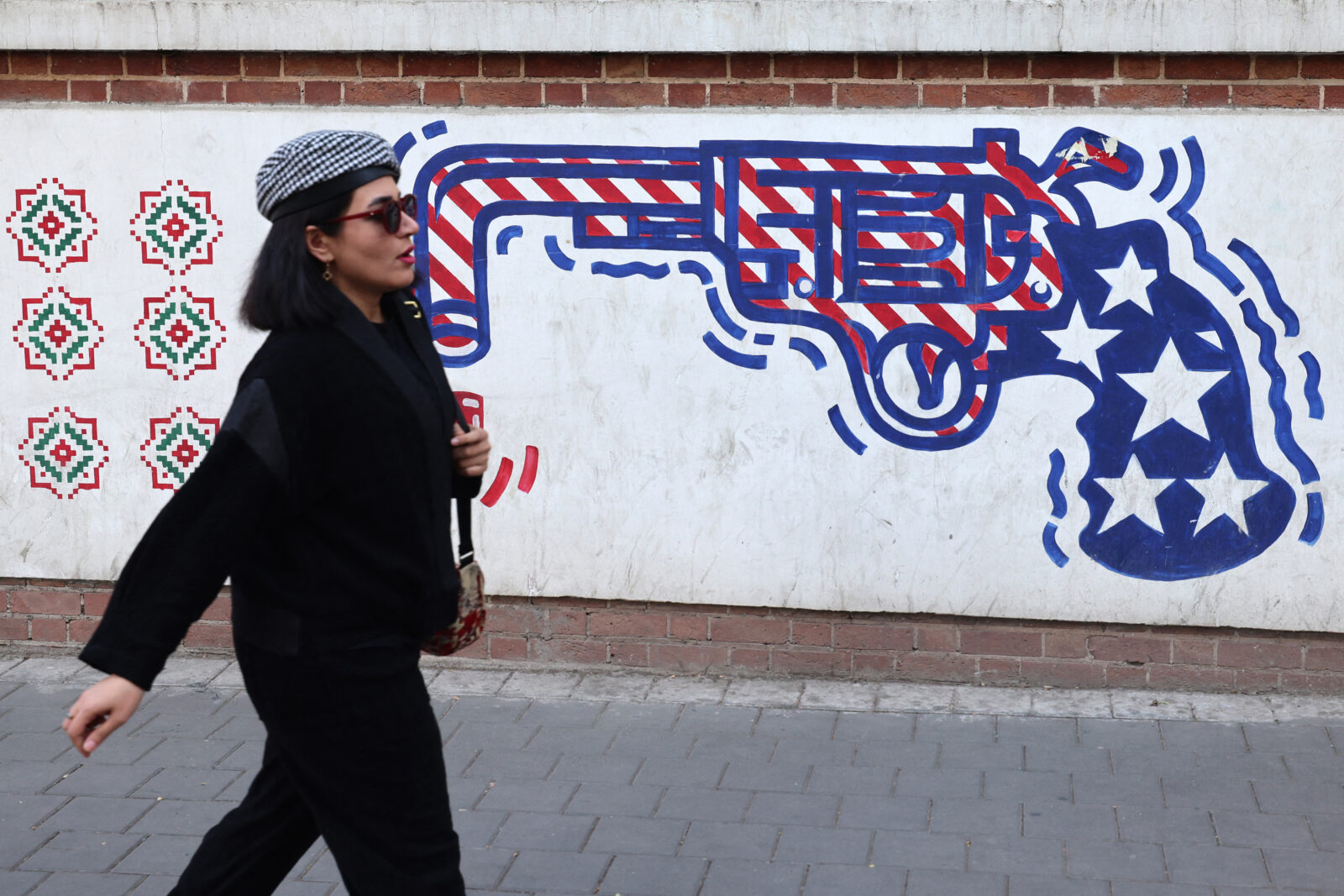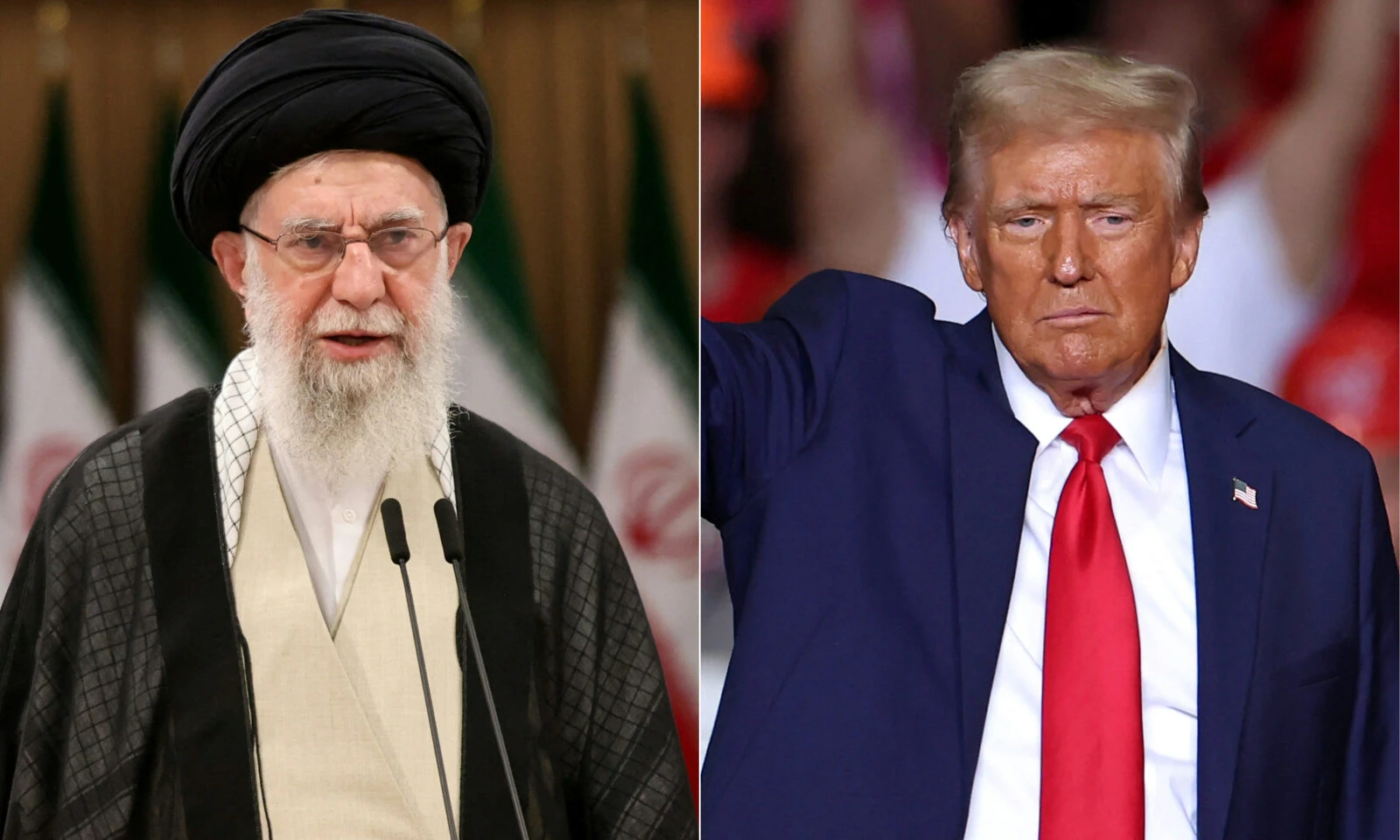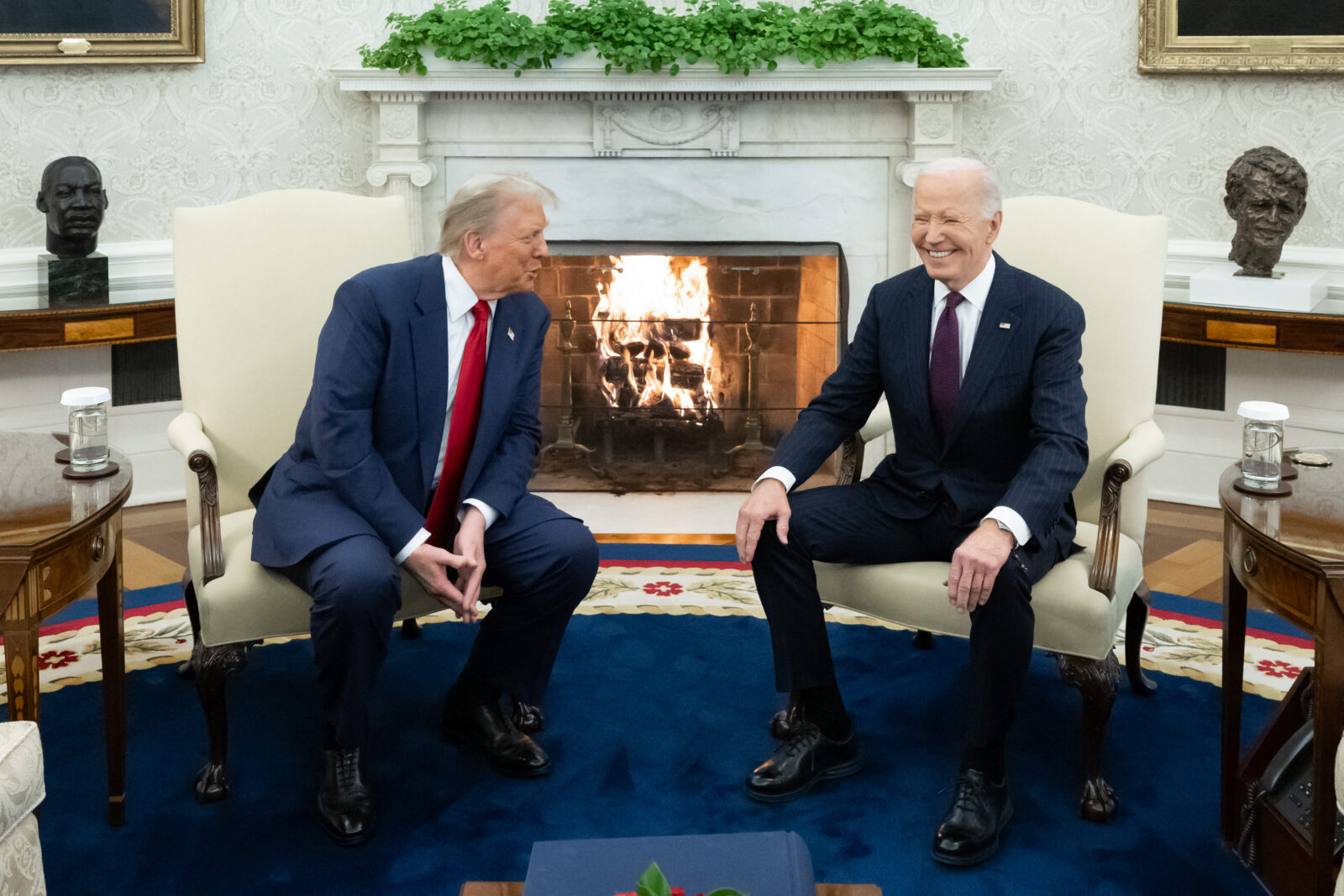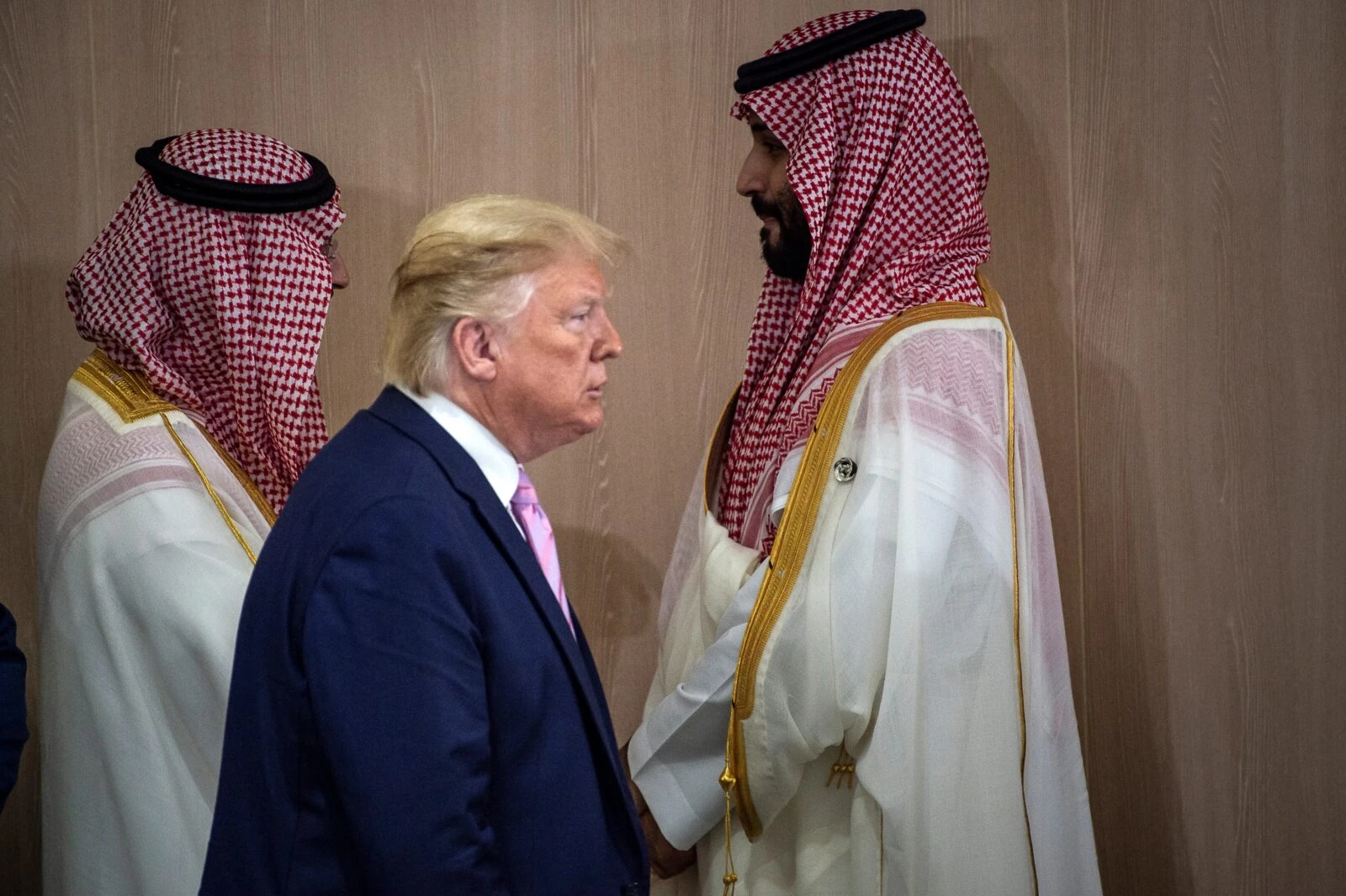Trump will ‘lead the pack’ in war against Iran if no deal made, not Netanyahu
 US President Donald Trump steps off Marine One upon arrival at the Leesburg Executive Airport Landing Zone in Leesburg, Virginia, on April 24, 2025. (AFP Photo)
US President Donald Trump steps off Marine One upon arrival at the Leesburg Executive Airport Landing Zone in Leesburg, Virginia, on April 24, 2025. (AFP Photo)
In a wide-ranging interview with TIME magazine at the White House on Friday, U.S. President Donald Trump outlined a forceful position on Iran, suggesting he would be prepared to lead military action if diplomatic efforts fail, while rejecting the notion that Israeli Prime Minister Benjamin Netanyahu could pull the United States into an unwanted conflict.
“By the way, he may go into a war. But we’re not getting dragged in,” Trump stated when asked if he was concerned Netanyahu would draw America into hostilities with Iran.
When TIME Senior Political Correspondent Eric Cortellessa sought clarification on whether the U.S. would remain uninvolved if Israel took military action against Iran, Trump significantly refined his position, making clear that American restraint was not guaranteed.
“No, I didn’t say that. You asked if he’d drag me in, like I’d go in unwillingly. No, I may go in very willingly if we can’t get a deal,” Trump emphasized. “If we don’t make a deal, I’ll be leading the pack.”
The statement comes as the latest of Trump’s most direct comments on potential military action against Iran during his second term, establishing conditions under which he might authorize U.S. involvement. It also reveals the delicate balance the president is attempting to strike between pursuing diplomacy and maintaining a credible military threat.

Direct talks with Iran underway
Trump confirmed his administration has initiated direct discussions with Iranian officials, expressing optimism about reaching an agreement. When asked if he would be open to meeting with Iran’s President or Supreme Leader, Trump responded with a simple “Sure,” indicating his willingness for high-level diplomatic engagement despite decades of hostility between the two nations.
The president disputed reports that he had prevented Israel from attacking Iran’s nuclear facilities, offering a more nuanced explanation of his approach. Trump is exercising influence over Israeli military planning while maintaining that Iran’s nuclear ambitions must be thwarted one way or another.
“I didn’t stop them. But I didn’t make it comfortable for them, because I think we can make a deal without the attack. I hope we can,” Trump said. “It’s possible we’ll have to attack because Iran will not have a nuclear weapon. But I didn’t make it comfortable for them, but I didn’t say no. Ultimately I was going to leave that choice to them, but I said I would much prefer a deal than bombs being dropped.”

Blame directed at Biden administration
Trump placed responsibility for current tensions squarely on his predecessor’s policies, arguing that the Biden administration’s approach to sanctions enabled Iran to rebuild its financial resources and resume support for regional militant groups.
“Iran was broke under Trump,” he claimed. “When Biden came and he took off all the sanctions, he let China and everybody else buy all the oil, Iran developed $300 billion in cash over a four-year period. They started funding terror again, including Hamas.”
The president further asserted that Hamas and Hezbollah “were out of business” during his first term due to financial pressure on Iran, directly connecting the Biden administration’s Iran policy to the October 7, 2023 attack on Israel. “Oct. 7 would have never happened. Would have never happened. Ever,” Trump insisted.

Middle East diplomatic initiatives
The interview revealed that Trump plans to make his first major foreign trip of his second term to the Middle East next month, visiting Saudi Arabia, Qatar, and the United Arab Emirates. He highlighted economic benefits as a primary motivation for the trip.
“Saudi Arabia, I happen to like the people very much, and the Crown Prince and the King—I like all of them, but they’ve agreed to invest a trillion dollars in our economy. $1 trillion,” Trump stated.
When asked about progress toward Saudi-Israeli normalization, Trump expressed confidence in expanding the Abraham Accords, the series of normalization agreements between Israel and Arab states achieved during his first term.

“I think Saudi Arabia will go into the Abraham Accords,” Trump predicted, adding, “that will happen… and by the way, I think it will be full very quickly.” He criticized the Biden administration for doing “nothing with the Abraham Accords” after he left office.
The president’s statements on Iran and broader Middle East policy come as his administration approaches its 100-day mark, with significant foreign policy challenges remaining across multiple regions, including ongoing conflicts in Ukraine and Gaza.
Trump’s willingness to consider military action against Iran while simultaneously pursuing diplomacy reflects his administration’s complex approach to a nation he has long identified as a destabilizing force in the Middle East, setting the stage for what could become one of the defining foreign policy issues of his second term.



